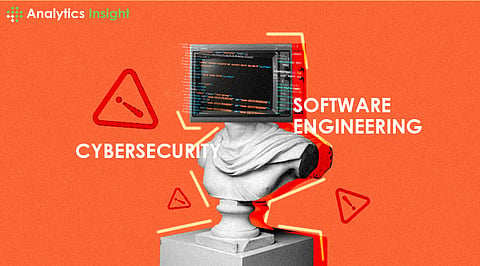

As technology continues to advance at a rapid pace, the demand for skilled professionals in various tech fields has skyrocketed. Two of the most prominent and rewarding career paths in 2024 are Cybersecurity and Software Engineering. Both offer lucrative opportunities and the chance to work on cutting-edge technologies. However, deciding which path is the best option for you depends on several factors, including your interests, skills, and career goals. In this article, we will compare Cybersecurity vs Software Engineering to help you make an informed decision.
Cybersecurity:
Cybersecurity professionals are tasked with protecting an organization’s data, networks, and systems from cyber threats. Key roles in this field include:
Security Analyst: Monitoring and analyzing security incidents.
Penetration Tester: Conducting simulated attacks to find vulnerabilities.
Security Architect: Designing secure IT systems and infrastructures.
Incident Responder: Handling and mitigating security breaches.
Software Engineers design, develop, and maintain software applications. Key roles in this field include:
Frontend Developer: Creating user interfaces and user experiences.
Backend Developer: Building and maintaining server-side logic and databases.
Full-Stack Developer: Handling both frontend and backend development.
DevOps Engineer: Streamlining software development and IT operations.
Salary and Job Outlook
Both fields offer competitive salaries, but there are some differences:
Cybersecurity Salaries:
Entry-Level: $70,000 - $90,000 per year
Mid-Level: $100,000 - $140,000 per year
Senior-Level: $150,000 - $200,000+ per year
Software Engineering Salaries:
Entry-Level: $80,000 - $100,000 per year
Mid-Level: $110,000 - $150,000 per year
Senior-Level: $160,000 - $200,000+ per year
Both career paths are expected to see robust growth in the coming years. The U.S. Bureau of Labor Statistics projects that employment for information security analysts (a key role in cybersecurity) will grow by 35% from 2021 to 2031, much faster than the average for all occupations. Similarly, software developer jobs are expected to grow by 25% over the same period.
Technical Skills: Knowledge of network security, cryptography, and incident response.
Certifications: CISSP, CEH, CompTIA Security+, etc.
Soft Skills: Analytical thinking, attention to detail, and problem-solving.
Software Engineering:
Technical Skills: Proficiency in programming languages (e.g., Python, Java, C++), understanding of algorithms and data structures, and software design principles.
Certifications: Not mandatory, but certifications like AWS Certified Developer or Microsoft Certified: Azure Developer Associate can be beneficial.
Soft Skills: Creativity, logical thinking, and teamwork.
Work Environment and Flexibility
Both fields offer the potential for remote work and flexible schedules, particularly in the wake of the COVID-19 pandemic. However, certain aspects may vary:
Cybersecurity:
Often involves on-call duties for incident response.
Can be high-pressure, especially during security breaches.
Software Engineering:
Typically follows a project-based work cycle.
Offers more predictable hours but can involve crunch times close to deadlines.
Career Growth and Opportunities
Cybersecurity:
With the increasing frequency and sophistication of cyber attacks, there is a continuous demand for cybersecurity experts. Career paths can lead to senior roles such as Chief Information Security Officer (CISO) or specialized roles in niche areas like threat intelligence and digital forensics.
Software engineers have diverse career opportunities ranging from technical roles to managerial positions. They can progress to roles such as Lead Developer, Software Architect, or Chief Technology Officer (CTO). Additionally, there is the potential to branch into related fields like artificial intelligence, data science, and machine learning.
Both Cybersecurity and Software Engineering are excellent career choices in 2024, each with its own set of rewards and challenges. Your decision should be based on your interests and strengths:
Choose Cybersecurity if you are passionate about protecting systems and data, enjoy problem-solving under pressure, and have a keen eye for detail.
Choose Software Engineering if you enjoy coding, building applications, and solving complex algorithmic challenges.
Ultimately, both fields offer strong job security, high salaries, and the opportunity to make a significant impact in the tech industry. Whichever path you choose, continuous learning and skill development will be key to staying ahead in these dynamic and ever-evolving fields.
Join our WhatsApp Channel to get the latest news, exclusives and videos on WhatsApp
_____________
Disclaimer: Analytics Insight does not provide financial advice or guidance on cryptocurrencies and stocks. Also note that the cryptocurrencies mentioned/listed on the website could potentially be risky, i.e. designed to induce you to invest financial resources that may be lost forever and not be recoverable once investments are made. This article is provided for informational purposes and does not constitute investment advice. You are responsible for conducting your own research (DYOR) before making any investments. Read more about the financial risks involved here.
